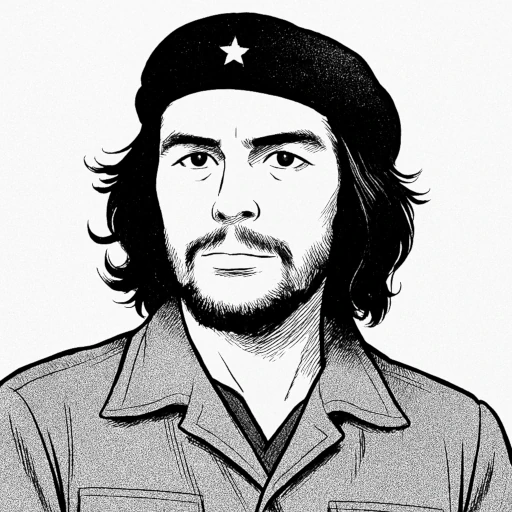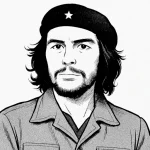“I would probably have more in common with a whale than with a bourgeois married couple employed at worthy institutions that I would wipe from the face of the earth if it was given to me to do so.”

- June 14, 1928 – October 9, 1967
- Born in Argentina
- Revolutionary, doctor, writer, politician
table of contents
Quote
“I would probably have more in common with a whale than with a bourgeois married couple employed at worthy institutions that I would wipe from the face of the earth if it was given to me to do so.”
Explanation
In this provocative and hyperbolic quote, Che Guevara starkly contrasts his revolutionary ideals with the values of the bourgeois class, specifically targeting the complacency and perceived hypocrisy of the middle class in capitalist societies. Guevara uses the example of a “bourgeois married couple” employed at “worthy institutions”—likely a metaphor for the respectable, professional, and privileged sectors of society—to highlight their distance from the working class and revolutionary struggles. By saying he would have more in common with a whale than with such a couple, Guevara suggests that the fundamental disconnect between his radical worldview and the bourgeois values of wealth, comfort, and conformity is so vast that even an animal as far removed from human life as a whale seems a more fitting companion. This hyperbole underscores Guevara’s deep alienation from bourgeois society and his belief that the social order was inherently exploitative.
The reference to “wiping from the face of the earth” can be interpreted as a dramatic expression of Guevara’s desire to dismantle the structures of capitalism and imperialism that perpetuated inequality and exploitation. While the language is extreme, it reflects Guevara’s commitment to the revolutionary cause and his belief that the bourgeois class, which he saw as benefiting from the suffering of the working class, had to be radically overthrown for any meaningful change to occur. Guevara’s rhetoric often leaned toward violent revolution, reflecting his radical view that peaceful methods would not suffice to bring about the structural changes he advocated for.
In a modern context, this quote speaks to the ongoing class divide in many societies, where the elite and middle class are often seen as disconnected from the realities of those suffering under poverty, oppression, or economic exploitation. While Guevara’s statement might seem extreme to modern sensibilities, it serves as a critique of societies that are still marked by social inequality. The gulf between the privileged classes and those struggling to meet basic needs is often stark, and Guevara’s words remind us that revolutionary movements—whether they be for economic justice, racial equality, or climate action—often find themselves in direct opposition to the status quo, which can be resistant to change. Guevara’s critique continues to resonate in today’s world, where many revolutionary movements call for the dismantling of systems that disproportionately benefit the elite while maintaining oppressive structures for the marginalized.
Would you like to share your impressions or related stories about this quote in the comments section?

